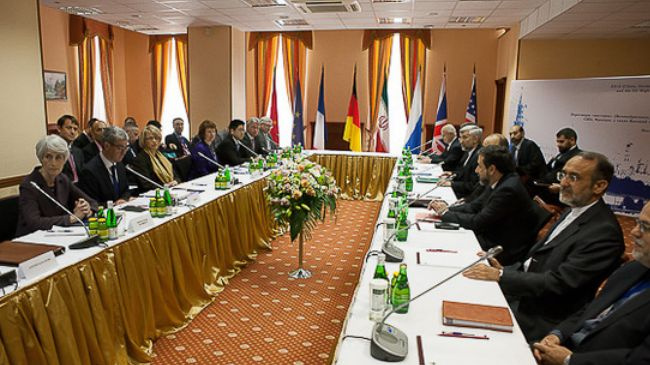The Nuclear Dossier Needs to be Reviewed

- What is mentioned by the West and Iran as achievements in different nuclear meetings is more of a diplomatic nicety designed to move things away from severe friction. In other words, both sides want to keep the status quo and prepare the ground for meaningful moves to strengthen their positions vis-à-vis each other.
- At the beginning of discussions on the nuclear issue, negotiations between Iran and the P5+1 were held at the level of foreign ministers. Later, the level of talks was reduced to the level of representatives, deputy ministers and director-generals. Now we witness that the level of talks has been reduced to the expert level. This is not a step forward, but a move to prevent the failure of talks.
- I believe the nuclear dossier needs to be reviewed. Is the passage of time to the benefit of the P5+1 and the management of continued pressure against Iran on the part of the US, or is it beneficial to Iran? The answer to this question can help us understand the nuclear dossier's future.
- Iran insists on its principled position, which is to achieve peaceful nuclear energy and the leader of the Islamic Republic considers any pressure by the West as being equaled by more resistance by Iran within the framework of its defined, principled position. On the other hand, the other side also insists on the implementation of Security Council resolutions against Iran, the most important provision of which is the suspension of uranium enrichment.
- Therefore, as long as layers of crisis exist between Iran and the P5+1, the resolution of the Iranian nuclear dossier will not be possible unless something unusual happens.
- The West has rightly or wrongly come to the conclusion that sanctions against Iran are effective, and these sanctions have led Iran to seek the repeal of sanctions as having the same weight as accepting uranium enrichment in Iran during the Istanbul, Baghdad, and Moscow meetings.
- The West, with this interpretation, will try to exert more pressure on Iran and create numerous crises for the Islamic Republic so that, according to Western strategists, Iran, for its survival, will be persuaded to accept Western countries’ conditions in the nuclear issue.
- It seems that the US policy is to manage effective sanctions against Iran with little consequences for Western countries and the US, for, if negotiations are continued under the present circumstances for the sole purpose of negotiating, the grounds to substitute Iran's oil in the world market will have more preparation time and the US will be able to prevent the increase in the price of oil after enforcement of sanctions.
- Therefore, it seems that if the P5+1 has accepted the continuation of talks at the expert level, it is not to reach a solution, but rather to buy time to enforce more effective sanctions against Iran with little consequences for Western countries with regard to oil sanctions in the near future. Thus, buying time in negotiations is to the interest of Western countries, and right now the price of oil follows a decreasing trend and the price of gold and the dollar exchange rate versus the rial are increasing.
- What is apparent in Iran's nuclear dossier as a highlighted boundary of political behavior and action is the point that basically any retreat by either side (either Iran or the West ) will lead to loss of legitimacy and discourse for both sides in the international system. Therefore, this highlighted boundary will ultimately lead to a power struggle between the two fronts and, if nothing extraordinary happens, serious friction between Iran and the West in the future will be possible.
- Thus, on one hand, both sides follow the logic of resistance, and on the other hand, both sides are positioned in a possible logic of confrontation at a higher level. This is where behavior and actions become paradoxical. They come to negotiate, on the one hand, and, on the other, they try to limit each other’s power of action.
- Hence, this logic is apparent in the literature used by the Secretary of Iran’s National Security Council; as it appears in the logic of Americans and Western countries. It means that they came to Moscow and Baghdad to negotiate, but at the same time to prepare the grounds for more sanctions against Iran.
Reasons for lowering the level of negotiators from representatives to experts
- Three points in this regard can be considered. Firstly, Iran's nuclear dossier has lost its importance for Western countries. Second, negotiations about Iran's nuclear file at the representative level are not enough for the West. Third, both sides will try to manage this issue through the studies and work of the experts.
- But I believe what manifests itself more with regard to the Iranian nuclear issue, considering the process followed by Western countries, is that the nuclear dossier is losing its importance for the West and negotiations are only held to prepare public opinion to exert more pressure on the Islamic Republic of Iran.
-Consequently, Western countries make efforts to direct Iran to negotiations in a state of weakness. Diplomacy in this regard is not after a peaceful solution of the issue, but rather to prepare the ground for public opinion to take the next operational steps. It is here that scenarists can think about international consensus and its link to regional consensus against Iran. This is a secret war of attrition in which Iran is now positioned.

